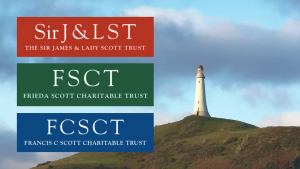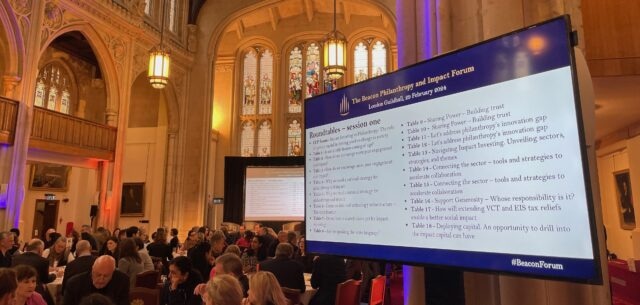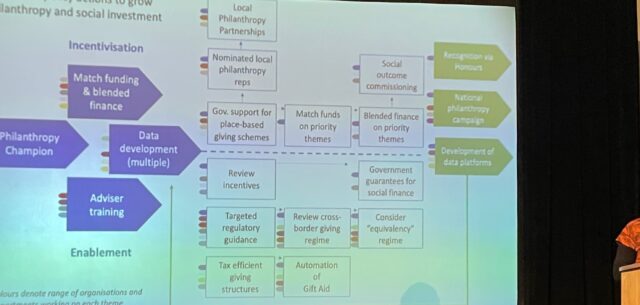Working with and through trusted partners – Responding to COVID-19

On-the-ground-knowledge is vital in times of crisis. The Scott family trusts have been active across Cumbria and North Lancashire for more than a hundred years. They know the territory; yet when faced with the scale of the challenge created by COVID-19 in their communities, they recognised the need to work with others.
How do the Scott Trusts build trust?
For the Scott Trusts this has meant directing their emergency contributions through the Cumbria Community Foundation and Lancaster District CVS. These partnerships provide them with confidence that their emergency funds are reaching frontline organisations in need with robust oversight and governance.
“As a funder you need awareness of your own capability and limitations. We have something to offer, but we lack infrastructure to distribute funds quickly, efficiently and at scale,” says Helen Carter, director of the family’s trusts.
The Scott Trusts’ emergency response is in addition to the ongoing support for longstanding grantees. Collectively, the family trusts work hard to be a constant, trusted presence in the community, working with grantees through times of crisis as well as during business as usual.
“It is our proximity to the communities we serve that provides our ability to give well when it matters most,” says Helen, who has been invited to sit on the grants panel of the Cumbria Community Response Fund run by the Community Foundation.
What advice does Helen Carter have for first-time funders?
For first-time funders seeking to support to the COVID-19 effort, she recommends using existing funds, such as the National Emergencies Trust (NET), which was set up to provide a single point of contact for those wishing to support front-line grant making nationally. The distribution of the funds raised by NET is managed by the UK Community Foundations (UKCF).
This approach means that funds are channelled through the UKCF network, which has the capacity to manage the process and local presence to get funds out to where they are needed most. The approach reduces duplication for grantee organisations by providing a single, straightforward access point for the organisations that need financial support.
“At times like these, you need trusted partners who know how to deliver. You need knowledge of the territory and you need to be part of a network,” says Helen.
She highlights that the emergency response to the crisis among the funding community has accelerated collaboration at local, regional and national levels.
“Organisations are overwhelmed and funders have been overwhelmed and we are all recognising that we need to come together to ensure an effective response,” she says.
She believes this collaboration has been essential during the emergency phase and it will continue to be important for funders and organisations through the rebuild phase to share knowledge, pool resources and work together.
“I think we are all wrestling with the question: what will the next phase look like? As funders we want to be able to get onto the front foot to support organisations through the recovery. That will take longer and will be the real test of how well we have managed through this crisis,” she concludes.






